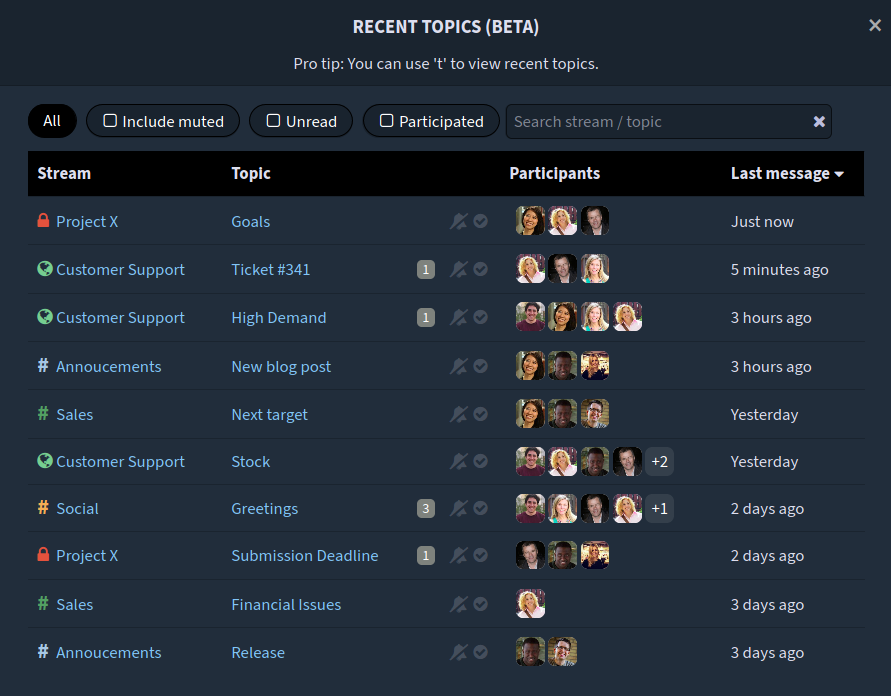
The launch of the new version of Zulip 3.0 which is a server platform to deploy corporate messengers, suitable for organizing communication between employees and development teams.
The project was originally developed by Zulip and it was opened after its acquisition by Dropbox under the Apache 2.0 license. The server-side code is written in Python using the Django framework.
About Zulip
The system supports direct messages between two people and group discussions. Zulip can be compared to Slack and can be seen as an internal corporate analog of Twitter, used to communicate and discuss work issues in large groups of employees.
Provides a means to track status and participate in multiple threads at the same time using a thread-like message display model, which is the best compromise between linking rooms in Slack and a single Twitter public space.
Simultaneously threaded viewing of all discussions allows you to cover all groups in one place, while maintaining a logical separation between them.
Of the capabilities of Zulip, it can also be noted: the support to send messages to the user offline (messages will be delivered after they appear online), save the complete discussion history to the server and tools to search the archive, the ability to send files in drag mode and drop, automatic syntax highlighting for code blocks transmitted in messages, built-in markup language to quickly format lists and format text, tools to send group notifications, the ability to create closed groups, integration with Trac, Nagios, Github, Jenkins, Git , Subversion, JIRA, Puppet, RSS, Twitter and other services, means of linking visual tags to messages.

What's new in Zulip 3.0?
In this new version of the platform Ubuntu 20.04 support is highlighted and support for Ubuntu 16.04 and Debian 9 was removed, in addition to this version PostgreSQL 12 is recommended by default in new installations with support for PostgreSQL 10 and 11.
Several significant performance optimizations have been made: Push notification system performance has quadrupled, some types of queries have been sped up, and performance for large deployments with 10.000 or more users has been significantly improved.
In Zulip 3.0 added the ability to move topics between streams or posts within topics.
Besides that also New external authentication methods for GitLab and Apple accounts are highlighted. The desktop app now has the ability to authenticate through Google, GitHub, and social media using an external browser.
Of the other changes that stand out in this new version:
- The layout of the navigation bar and search area has changed.
- Added a section with recently added topics.
- A general refinement of all widgets has been carried out.
- Added markup for messages to define dropdown blocks (spollers).
- When replying with a quote, the replacement of the link to the original message is provided.
- Simplified the appointment of the time of events (the time is now indicated to each recipient, taking into account their time zone).
- Migrated from Django 1.11.x to 2.2.x branch.
- A new webhook API has been added to intercept incoming messages, similar to Slack's webhook API.
- The problem numbering scheme has changed. The second digit in the version will now indicate the corrective update.
Finally if you want to know more about it, you can check the following link.
Downloading and installing Zulip on Linux?
For those who are interested in being able to install Zulip, they should know that it is available for Linux, Windows, macOS, Android, and iOS, and a built-in web interface is provided.
The Zulip developers provide Linux users with the application in an AppImage format which we can download from its official website.
We give execution permissions with:
sudo chmod a+x zulip.AppImage
And we execute with:
./zulip.AppImage
Another installation method is through Snap packages. The installation is carried out by executing in the terminal:
sudo snap install zulip